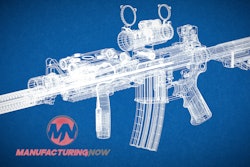
In today’s competitive business world, distribution and fulfillment play a role in guaranteeing customer satisfaction and staying ahead of the competition. Companies often face a decision between handling these functions in-house or outsourcing them. Each approach has advantages and challenges, making it vital for businesses to evaluate their requirements and objectives carefully. Let’s explore the pros and cons of insourcing and outsourcing distribution and fulfillment.
Insourcing Distribution and Fulfillment
Insourcing distribution and fulfillment involves managing these processes within the organization itself. This approach offers benefits that can significantly impact a company’s operations and customer satisfaction. Insourcing can also be a part of an overall vertical integration strategy used to control all aspects of the supply chain. Companies like Apple and Nike manufacture, distribute and sell their products in their own retail stores.
Pros of insourcing:
1. Adaptability: Insourcing provides control over the distribution and fulfillment process. Companies can tailor their operations to meet customer demands while quickly adapting strategies as market conditions change.
2. Assurance of quality: Direct oversight enables businesses to uphold quality control measures, ensuring that products are handled, packaged and shipped according to company standards. This enhances brand reputation while building trust among customers.
3. Improved customer experience: In-house businesses can enhance customer satisfaction and loyalty by handling order processing, shipping times and customer service.
4. Confidentiality and security: Keeping business information within the organization reduces the risk of data breaches or intellectual property theft when outsourcing to third-party providers.
5. Transparent cost analysis: Insourcing enables companies to have visibility into costs, allowing them to analyze expenses and optimize efficiency effectively.
Cons of insourcing:
1. Significant initial investment: Setting up an in-house distribution and fulfillment operation requires investments in infrastructure, technology and skilled personnel.
2. Resource management challenges: Managing human resources for capabilities can divert attention from core business functions.
3. Limited expertise: Some companies may lack the expertise or experience to handle complex distribution and fulfillment tasks, resulting in potential inefficiencies and increased costs.
Outsourcing Distribution and Fulfillment
Outsourcing distribution and fulfillment involves partnering with third-party providers (3PL) to handle these operations. This approach offers advantages that benefit companies looking to streamline operations and reduce costs.
Pros of outsourcing:
1. Cost savings: Companies can take advantage of a provider’s knowledge, expertise and resources which can result in labor, technology and infrastructure cost savings.
2. Focus: Businesses can focus more on their core competencies, such as product development and marketing. By outsourcing functions, they can allocate time and resources to these essential areas, ultimately boosting productivity and fostering innovation.
3. Scalability: Outsourced providers can quickly adjust to fluctuations in demand, allowing companies to scale their operations up or down without requiring investments or significant adjustments.
4. Technology: Partnering with providers often means accessing cutting-edge software systems that enhance efficiency and accuracy in distribution and fulfillment processes.
5. Expertise: Collaborating with distribution and fulfillment providers brings industry expertise into play. This ensures a process that is optimized according to industry practices.
Cons of outsourcing:
1. Oversight: One concern is reduced control over the distribution and fulfillment process since it involves relinquishing oversight. This may lead to challenges in communication and coordination between all parties involved.
2. Quality: There may be quality concerns when relying on providers. As a company puts its reputation in a 3PL’s hands, any lapses in service or quality could impact the brand.
3. Security: Security and confidentiality risks arise when sharing data, especially customer data and information, with third-party vendors requiring data protection measures.
4. Dependency: Businesses that outsource their logistics to a 3PL become dependent on that 3PL. If the 3PL experiences a disruption, it can harm the business.
The Hybrid Approach
In addition to the two options outlined above, distributors can also take a hybrid approach. 3PLs can be leveraged by distributors who are expanding their operations. If you are a Midwest-based plumbing distributor starting to build a business base on the West Coast, you can temporarily outsource that West Coast business to a 3PL in the area. This will provide faster and cheaper last-mile delivery to your growing customer base. Once your sales have grown to sustain the cost of a permanent warehouse, you can shift from the 3PL to your new facility. By taking this approach, you limit your liability in the new territory.
Forging a Path Forward
Deciding whether to handle distribution and fulfillment in-house or outsource is a decision that requires an evaluation of a company’s unique requirements, resources and strategic goals. Each approach presents advantages and challenges, making it essential for businesses to carefully assess their needs before making an informed choice.
Insourcing offers companies control, flexibility and quality assurance. However, this approach demands significant investments and resource management. On the other hand, outsourcing provides cost savings, scalability and access to expertise and technology but may entail reduced control and potential security concerns.
Many businesses adopt a model that combines the benefits of insourcing and outsourcing. Irrespective of the chosen path, a thought-out distribution and fulfillment strategy will undeniably contribute to a company’s success and growth in today’s evolving business landscape.
Will Quinn is the director of distribution industry and solution strategy at Infor.






















